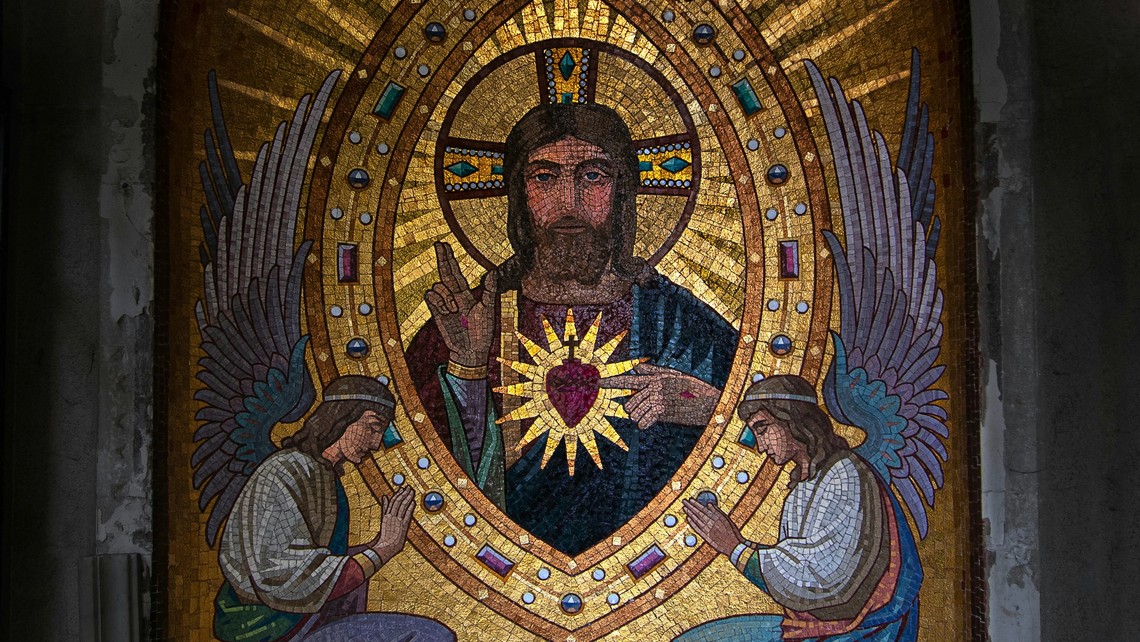
One of the more substantive attributes man possesses is the opportunity to communicate with God the Father. Made in his image and likeness, man is both provided and afforded the ability and opportunity to speak with the Father or be in conversation with him. An important aspect of this dialogue is that one communicates infinitely while the other communicates in finite terms. Hence, you can imagine the difficulty for man to develop an intimate relationship with God the Father through the act of prayer. One is not impeded because he is God; the other perpetually faces all forms of spiritual impediments that would prevent him from understanding the will of the Father.
Why is it important that we understand the spiritual anatomy of man’s capacity to pray with and to God? One important reason is the necessity to understand the will of God in our life, which in turn allows us to understand the gift of grace that he continually avails to us, and finally, the humility or spiritual deference to understand how to receive and act on his grace with humility and love. The communication between the Divine and the human has been with us since the beginning of creation, and the acts of this communication have been orally revealed in Sacred Tradition and then written Sacred Scripture.
As the practice of praying with and to God through the Son Jesus Christ under the inspiration of the Holy Spirit continued to develop throughout the history of the Church; the celebration of the liturgy as revealed by Christ at the Last Supper became the principal way the Church both worshiped and prayed to God commemorating the life and death of Jesus Christ on the Cross culminating in the reception of Jesus’ body and blood in the consecrated Eucharistic species of bread and wine. The celebration of the sacred Liturgy reveals Jesus’ loving heart by his willingness to die for our sins, thus conquering sin and death, and opening the path to heaven.
The gift of praying, adoring, and worshipping our Lord Jesus Christ was very important to St. John Eudes, who sought to develop a more intimate union between God and man through the liturgy. He understood the intimate relationship between the heart of Christ and the celebration of the liturgy. The liturgy provides an opportunity where the heart of Christ would be united with the heart of man. Following this premise, it was St. John who first initiated the practice of developing a devotion to the Sacred Heart of Jesus Christ. In the Sacred Heart of Jesus, St. John observed the connection between the Holy Eucharist and the heart of Christ. It is the Holy Eucharist that fully reveals the love of Jesus for humanity by offering his heart in death. Jesus fully revealed his love for us first by his preaching and teaching, second by his death, third by his resurrection, and finally by his ascension into heaven. These acts of the heart serve as the principal elements of devotion to the Sacred Heart of Jesus. The devotion to the Sacred Heart aimed to unite our heart, our inner tabernacle, to the heart of Christ in the sacred liturgy.
The Catechism tells us that,
Jesus knew and loved us each and all during his life, his agony, and his Passion and gave himself up for each one of us: “The Son of God … loved me and gave himself for me.” He has loved us all with a human heart. For this reason, the Sacred Heart of Jesus, pierced by our sins and for our salvation,117 “is quite rightly considered the chief sign and symbol of that … love with which the divine Redeemer continually loves the eternal Father and all human beings” without exception.[1]
When Jesus offered himself in sacrifice for the sins of humanity, Jesus’s cruciform death reveals the depth of his love for us through the offering of both his body and his spirit. The commendation of his spirit is also a commendation of his love for us, where St. John fittingly saw a relationship between the Incarnation and the Sacred Heart of Jesus as the primary way we can come to know the Father through the Son. It is important to consider the transformative aspects of developing a devotion to the Sacred Heart. First, it unites the finite nature of man with the infinite nature of God. Second, the heart serves as the pathway to spiritual docility and reverence for Christ, which leads to developing a proper moral compass and disposition. The Catechism tells us that the heart is the seat of moral personality.[2] Third, devotion to the Sacred Heart reveals God’s mercy toward us through the death of His Son. We must not forget that Jesus loved us with his human heart.
"O Sacred Heart of my Lord and Savior Jesus Christ, to Thee I consecrate and offer up my person and my life, my actions, trials, and sufferings, that my entire being may henceforth only be employed in loving, honoring, and glorifying Thee. This is my irrevocable will to belong entirely to Thee, and to do all for Thy love, renouncing with my whole heart all that can displease Thee. I take Thee, O Sacred Heart, for the sole object of my love, the protection of my life, the pledge of my salvation, the remedy of my frailty and inconstancy, the reparation for all the defects of my life, and my secure refuge at the hour of my death."
St. Margaret Mary Alacoque






